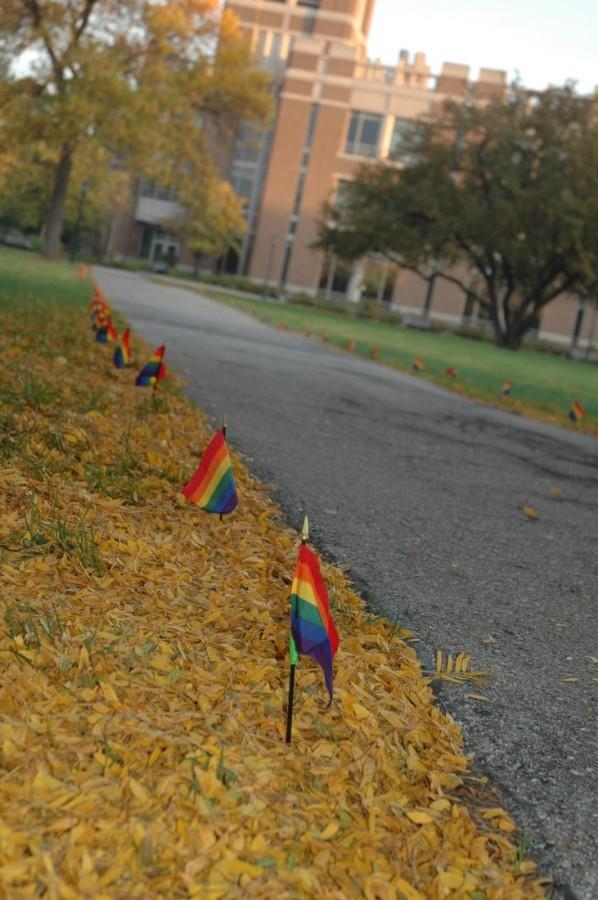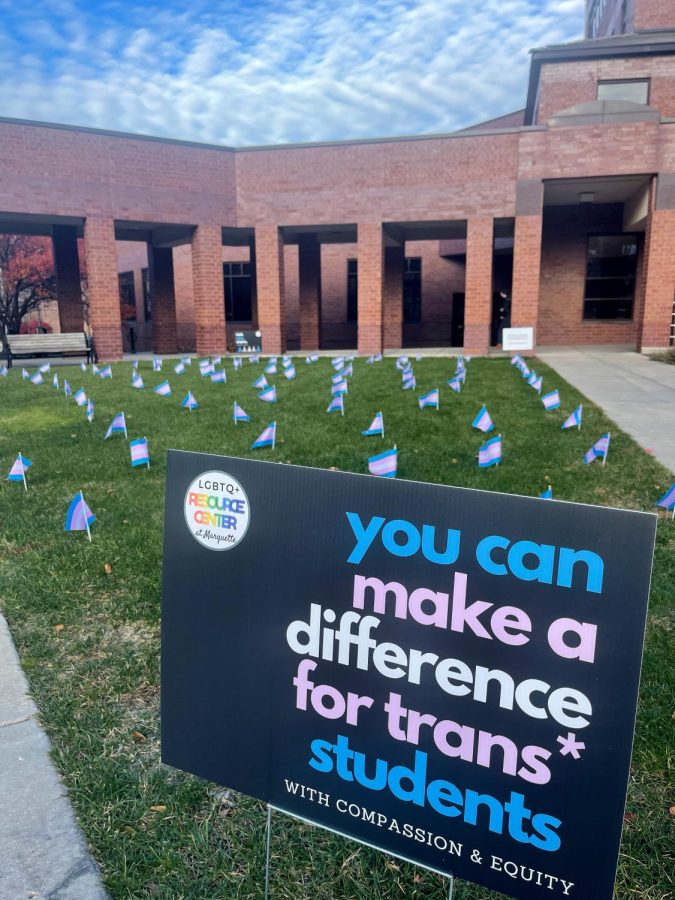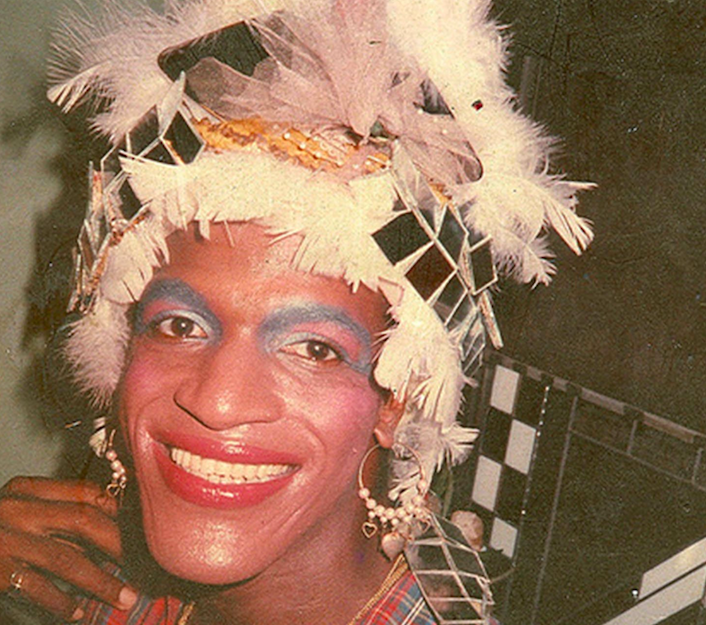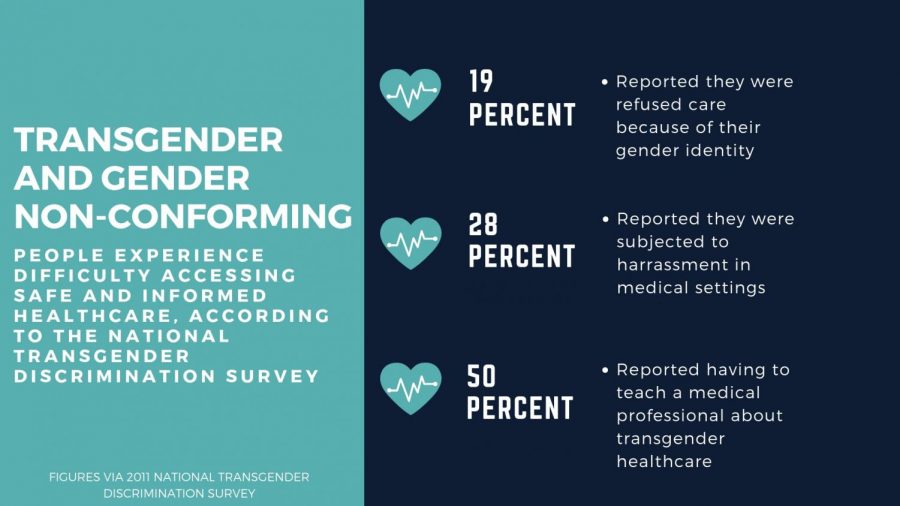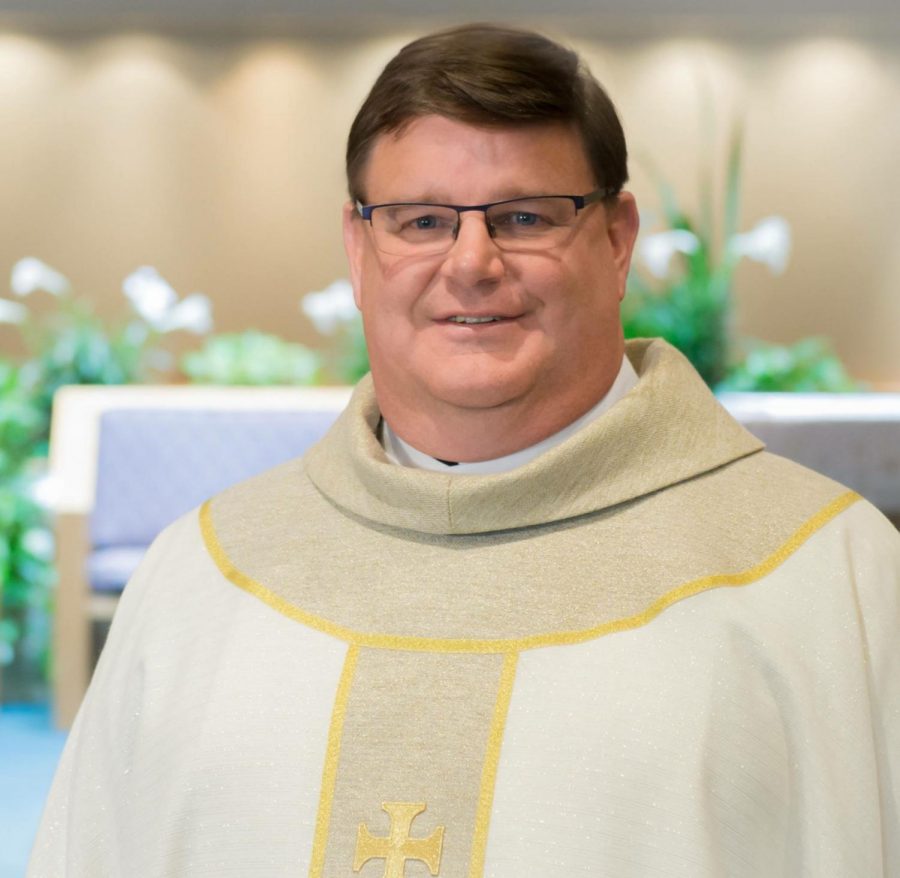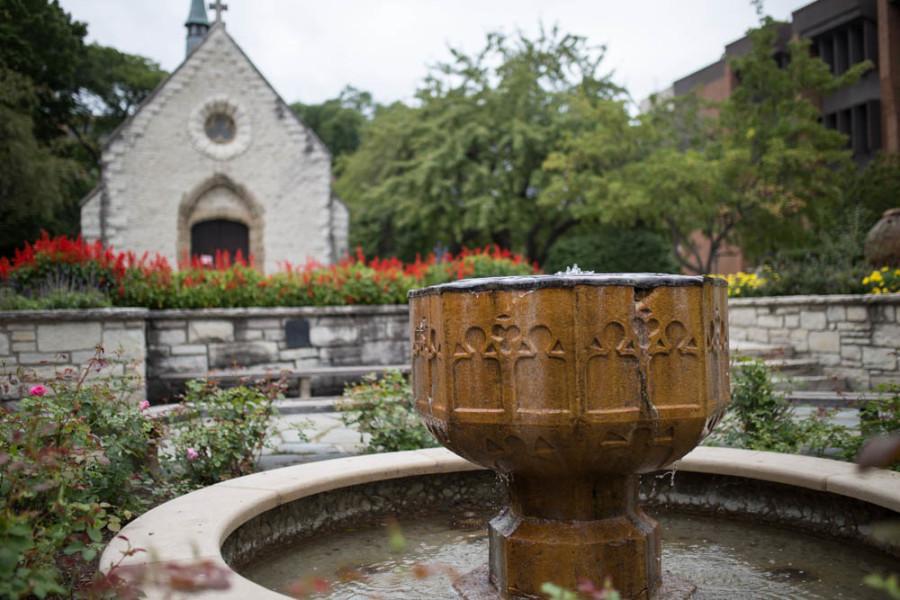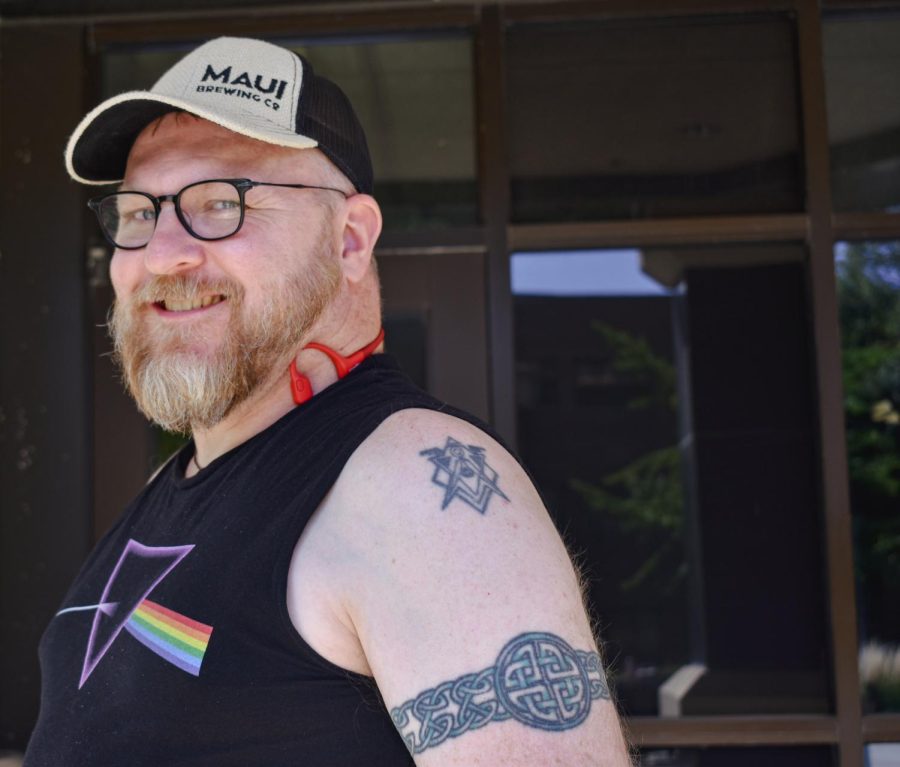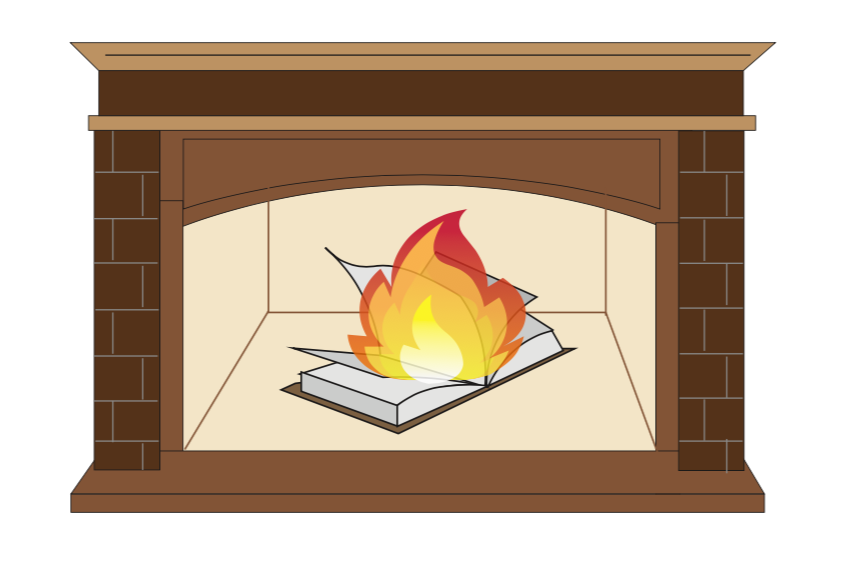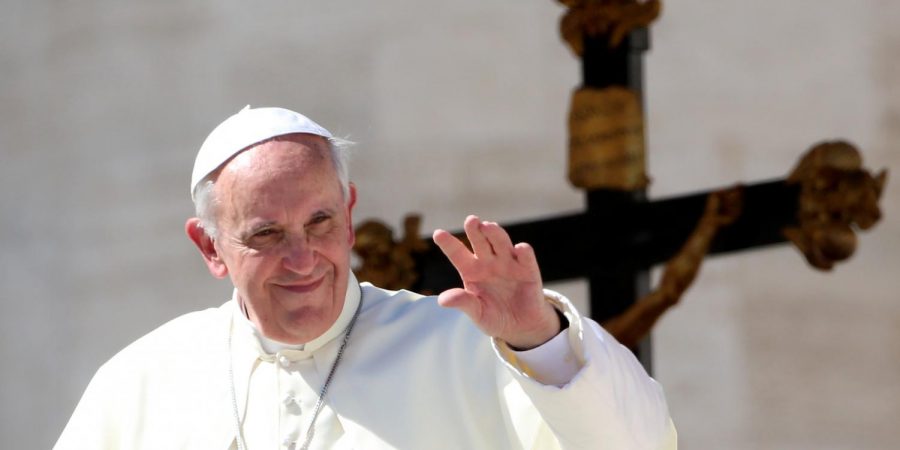Since it has a relatively small lesbian, gay, bisexual, transgender and questioning community, Marquette has struggled to define its role in the LGBTQ debate and how best to support its LGBTQ students and allies without losing its identity as a Catholic and Jesuit university.
The discussions about Marquette’s LGBTQ community – how best to support these students and faculty and whether there is prejudice on Marquette’s campus – stretch back as long as the LGBTQ community’s campaign for equal rights.
One of Marquette’s newest resources for its LGBTQ community is the Gender and Sexuality Resource Center. The center, which opened in September, will celebrate its three month anniversary Dec. 11.
“The mission of the center is to provide a space dedicated to the pursuit of dialogue, growth and empowerment around issues of gender, sex and sexuality,” according to the GSRC’s website.
The center has been actively engaging students on campus and has gotten use from students on campus, said Susannah Bartlow, the center director.
“First semester the center (saw) good use – we had about three to four walk-ins a week,” Barlow said. “But more students come in at night to study.”
The opening of the GSRC marks the most recent development in Marquette’s efforts to be more supportive of LGBTQ members of the student body and faculty.
Recent history
In May 2010, LGBTQ issues came to the forefront of conversation on campus when Jodi O’Brien, an openly lesbian professor from the University of Seattle, was offered the position of dean of the College of Arts & Sciences. Shortly after the contract was signed, the offer was rescinded without the consultation of the Academic Senate, according to a document produced in 2010 after a consultation for Marquette by Ronni Sanlo, a former UCLA senior associate dean of students and expert in LGBTQ issues in higher education. The position of dean of the College of Arts & Sciences has not yet been filled.
The offering and then rescinding of that job offer to O’Brien caused discontent on campus among the LGBTQ community and allies. According to members of the Gender Sexuality Alliance, almost 200 students turned out to protest Marquette’s rescinding of its offer to O’Brien.
“What really made students angry was how the administration flip-flopped on the messages to the student body to the point where it was obvious to community members that there was a total lack of transparency,” said Nick Gutierrez, the vice president of the GSA.
After the O’Brien incident, the InterVarsity Christian Fellowship came under fire when leaders asked one of its officers to step down after he came out as gay. The group claimed he was asked to leave because of his views on celibacy, while the student, who wished to remain anonymous, claimed he was expelled because of his sexual orientation. The InterVarsity Christian Fellowship was put on probation by the Office of Student Development for violating policies and procedures of its own constitution.
Campus climate
Marquette’s “campus climate,” which refers to how accepted members of Marquette’s LGBTQ community feel by both the administration and the student body, has varied over the past years.
“There’s not as much openness here as there should be,” said Anna Oson, the secretary of the GSA.
Members of the GSA said they often have to worry about the administration in situations that other clubs might not have to.
“Honestly, sometimes it feels like we’re walking on eggshells,” said Emily Wright, the president of the GSA. “The administration isn’t blatantly against the LGBTQ community, but we always have to ask what kind of push back we can expect from them.”
Provost John Pauly said students are at the center of all the university’s decisions.
“Behind everything we’ve done is a strong principle of care and respect for students,” Pauly said.
Despite words of support from the administration, members of the LGBTQ community said they feel the university’s past actions have spoken louder than words.
“Marquette has had a very hard time reconciling its Catholic identity with its identity as a liberal academic university,” said Nicole Cunningham, the public relations spokesperson for the GSA.
The divide between staying true to Catholic doctrine in regard to LGBTQ issues and supporting students who identify as LGBTQ has sparked discussion over how Marquette should handle the issue as a Jesuit institution.
Multiple students in GSA said that anti-gay rhetoric, including the words “faggot,” “gay” and “homo,” is still used by Marquette students.
“I don’t think there has been a conscious effort to stop the use of anti-LGBTQ language,” Olson said.
Despite some students saying the campus can sometimes feel hostile to members of the LGBTQ community, members of the GSA agreed that students, for the most part, are amiable with the LGBTQ community.
“There is a decent minority of students who are unfriendly toward the LGBTQ community, but for the most part there is a ‘live and let live’ attitude,” Gutierrez said. “More often than not, the students who are not LGBTQ-friendly come from backgrounds that are devoutly religious and socially conservative or have no exposure to the LGBTQ community.”
According to the GSA, certain departments within the university have been especially supportive of the GSA and Marquette’s LGBTQ community, including the Intercultural Engagement department within the Office of Student Development, Marquette Student Government, the Counseling Center, the LGBTQ faculty committee, the Academic Senate, the social sciences departments and the department of philosophy.
Campus resources
After Marquette offered and rescinded its offer to hire Jodi O’Brien, the university had to face national negative attention. There was speculation that O’Brien’s offer had been rescinded because of her sexual orientation. According to former university spokeswoman Mary Pat Pfeil, however, the offer was rescinded in part because some of O’Brien’s published writings conflicted with Catholic mission and identity.
“There was a moment of community reflection that came out of that that has been healthy for Marquette,” Pauly said.
Pauly said this moment of reflection has come with a renewed effort to support Marquette’s LGBTQ community. Marquette now offers domestic partner benefits to its employees and has put more money into women, gender and sexuality studies.
Despite the rift caused by the O’Brien incident, Marquette has worked to repair its relationship with students and faculty who identify as LGBTQ and allies.
“There is a movement at Marquette realizing that we need to better manage our commitment to our LGBT community,” said Steve Blaha, an assistant director of campus ministry. Blaha has facilitated LGBTQ discussion nights at Marquette for nearly 25 years.
A number of different support systems have come out of this movement, including increased efforts from the Office of Student Development to support students as LGBTQ.
“The Office of Student Development supports students and their allies in many ways, which include educational programming, a mentorship program (designed for students who have underrepresented religious, racial/ethnic and/or sexual identities and first generation students), and student organization support,” said John Janulis, the Coordinator for Intercultural Engagement, in an email. “Further, the Office of Student Development works in collaboration with other curricular and co-curricular departments to incorporate LGBTQ perspectives into course curricula and campus events.”
The Gender and Sexuality Resource Center, which opened this year, is Marquette’s latest effort to be more supportive of the LGBTQ community. The GSRC operates out of the Office of the Provost.
Bartlow, the GSRC director, said she has received unconditional support for the center from Marquette’s administration.
“I am happy we got someone of Susannah’s caliber,” Pauly said.
In its first year, the main goal of the center is to assess what the needs of the Marquette community are.
“The Center advocates for Marquette’s LGBTQ community members and allies,” the GSRC’s mission statement states.
So far, the GSRC has co-hosted LGBTQ discussion nights with campus ministry, co-sponsored a comedian with University of Wisconsin-Milwaukee and hosts two faculty research projects, among other things.
“My vision is for a lot of different students to come for the social and academic aspects,” Bartlow said. “We grow as people when we think about our gender.”
Bartlow said she believes the campus climate toward members of the LGBTQ community can, at times, be unwelcoming.
“I think there’s some tension on campus,” Bartlow said. “We don’t really know, and some of that makes it difficult. There’s a lot of silence around it. Some people don’t feel comfortable, and the GSRC presents a space for people to get what they need.”
Bartlow said one of the objectives of the GSRC was to ask questions about Marquette’s LGBTQ community and perception on campus.
“What are the dynamics playing into why people aren’t comfortable?” Bartlow asked.
As the center continues to serve students in the coming years, it hopes to be able to conform to the needs of Marquette and its student population.
“The GSRC is a huge sign of Marquette’s commitment to the LGBTQ discussion,” Blaha said. “And the center will help initiate and explore questions of gender and human sexuality.”
Marquette also brought in Ronni Sanlo, an LGBT activist and a former professor at UCLA. It was Sanlo who recommended that the GSRC be created in her report about LGBTQ resources and climate at Marquette.
Other universities
In comparison to other Jesuit universities, Marquette seems to be in the middle of the pack in terms of resources available to the LGBTQ community on campus.
Seattle University, where O’Brien was a professor, is home to four university-sponsored groups composed of gay students as well as a “queer and trans lounge and library.”
While this may not be necessary at Marquette, which is home to a much smaller LGBTQ community than that of Seattle University, there are still more steps the university can take.
Likewise, the University of Wisconsin-Madison has an array of campus resources for its LGBTQ students. The LGBT Campus Center, which was founded in 1992, is comparable to Marquette’s Gender and Sexuality Resource Center, which opened in September.
According to the Madison’s LGBT Campus Center mission statement, “The Mission of the Lesbian, Gay, Bisexual, Transgender Campus Center is to strengthen and sustain an inclusive campus community for LGBTQ and allied students by eliminating heterosexism, homophobia and gender identity oppression.”
Besides its LGBT Center, Madison is home to 11 LGBTQ and ally-oriented student groups and five support and discussion groups. Another program Madison has is its Queer and Ally Leadership Institute, which is designed to develop skills of LGBTQ leaders and their allies regarding intersecting identities, privilege and oppression.
The University Wisconsin-Milwaukee and Saint Louis University both have “Safe Zone” programs to train students and faculty to become safe contacts, resources and allies for students of the LGBTQ community. UW-Milwaukee also has an LGBT center.
Next steps for Marquette?
While members of Marquette’s GSA are excited about the new Gender and Sexuality Resource Center, many think Marquette still has areas in terms of LGBTQ support that could be improved.
“We need to work on gender identity and gender expression,” Wright said. “I would hope in the next five years we’d have gender identity and expression in the non-discrimination policy.”
While Marquette’s non-discrimination policy already includes sexual orientation and gender, adding non-discrimination of gender identity and expression would protect both students who identify as transgender and students who express their gender identity.
“Marquette does not discriminate in any manner contrary to law or justice on the basis of race, color, gender, sexual orientation, age, religion, disability, veteran’s status or national origin in its educational programs or activities, including employment and admissions,” the policy states.
While some of the work involving gender identity is covered through the role of the GSRC, members of the GSA would like to see a more concerted effort from Marquette both on a support side and an academic side.
The lack of classes that focus on LGBTQ issues was concerning to Gutierrez, the GSA vice president.
“We’d like to see a wider variety of classes that deal with the issues surrounding Marquette’s LGBTQ community,” Gutierrez said. “And not only theology classes, where the foregone conclusion is that gay is bad.”
Members of the GSA would also like to see increased ally training.
“I’d really like to see more ally training for Resident Assistants and (members of) Greek Life,” Olson said.
Pauly acknowledged that while there was still room for improvement, great strides had been made.
“Every university can do more for these issues, but I am really pleased on the progress we’ve made in a relatively short amount of time,” Pauly said.
According to Blaha, the best way to work out the differences between students, including students both for and against expanding university resources for the LGBTQ community, is to sit down and talk openly about these issues.
“What we see across the country is not a lot of listening, but rather a lot of statements,” Blaha said. “I find that when we sit down together as people, it more often times then not provides direction for a mutual, civil discussion.”

